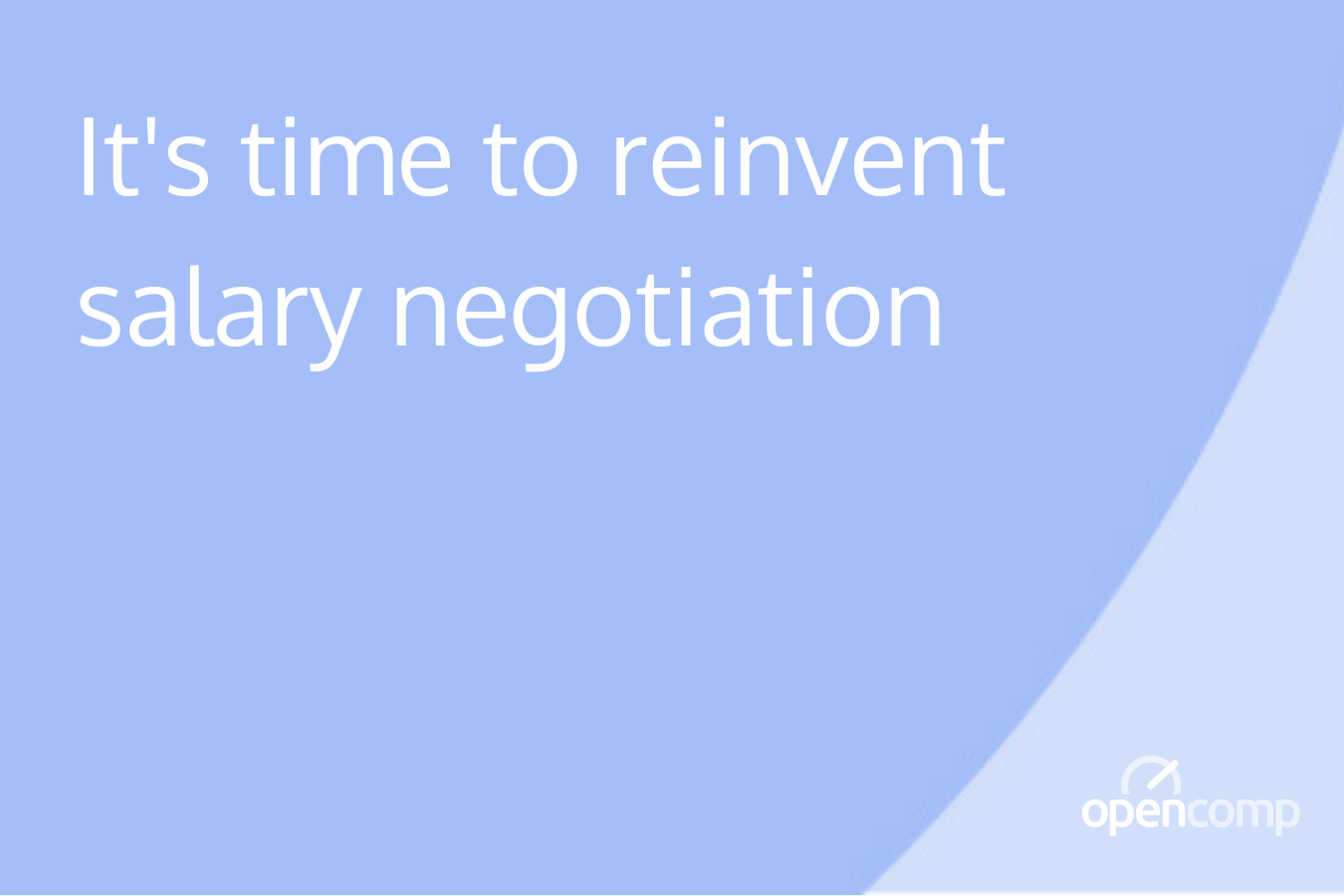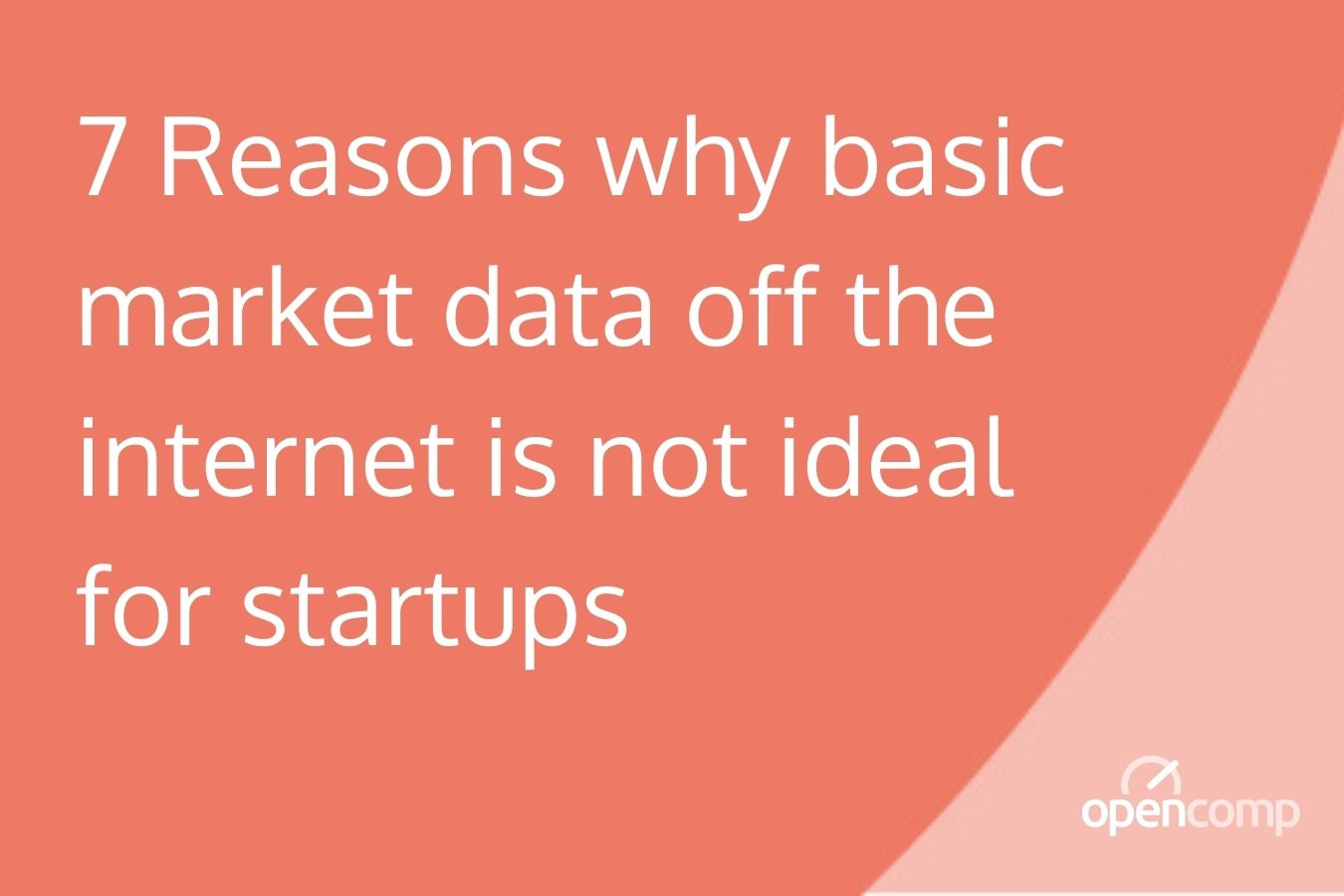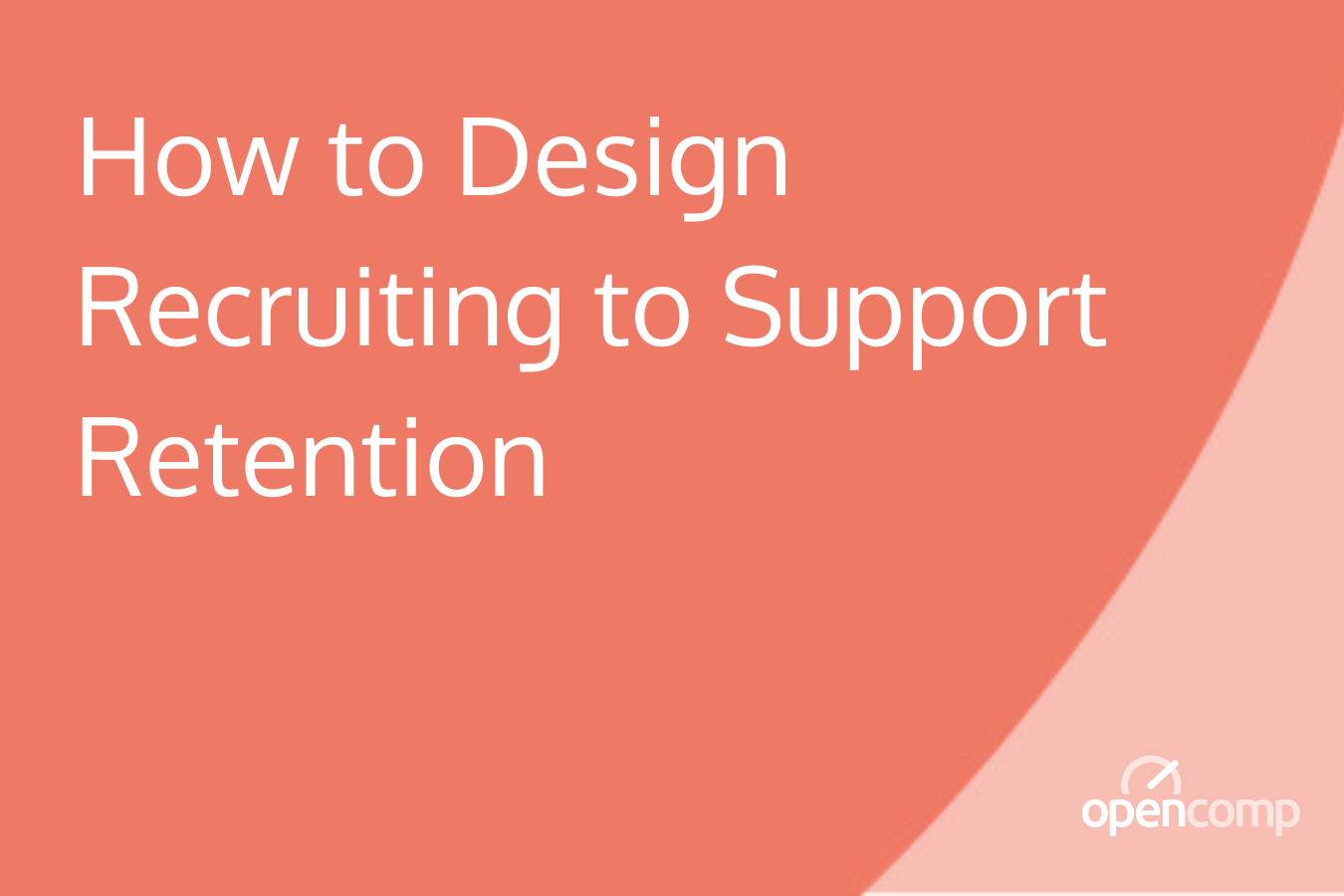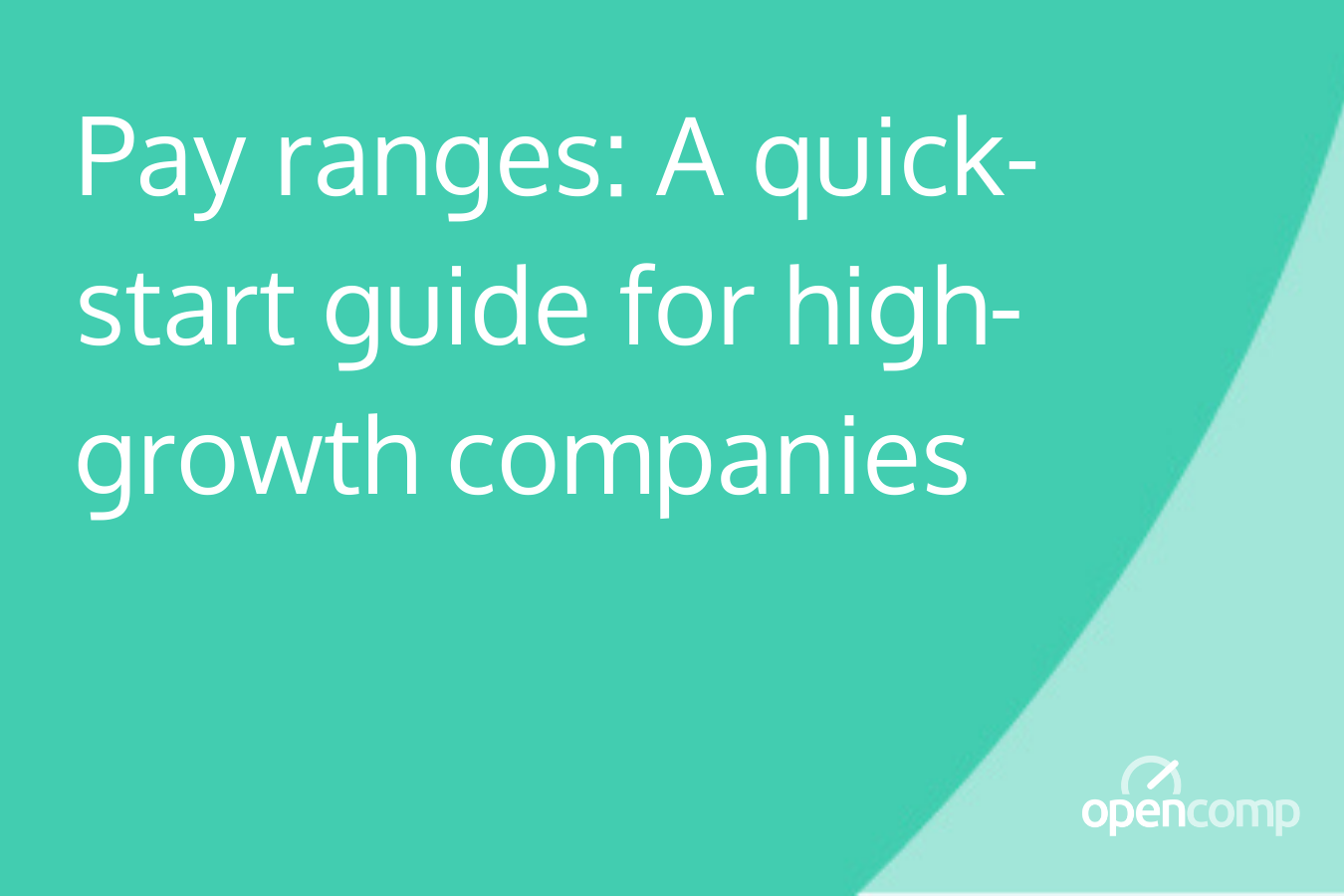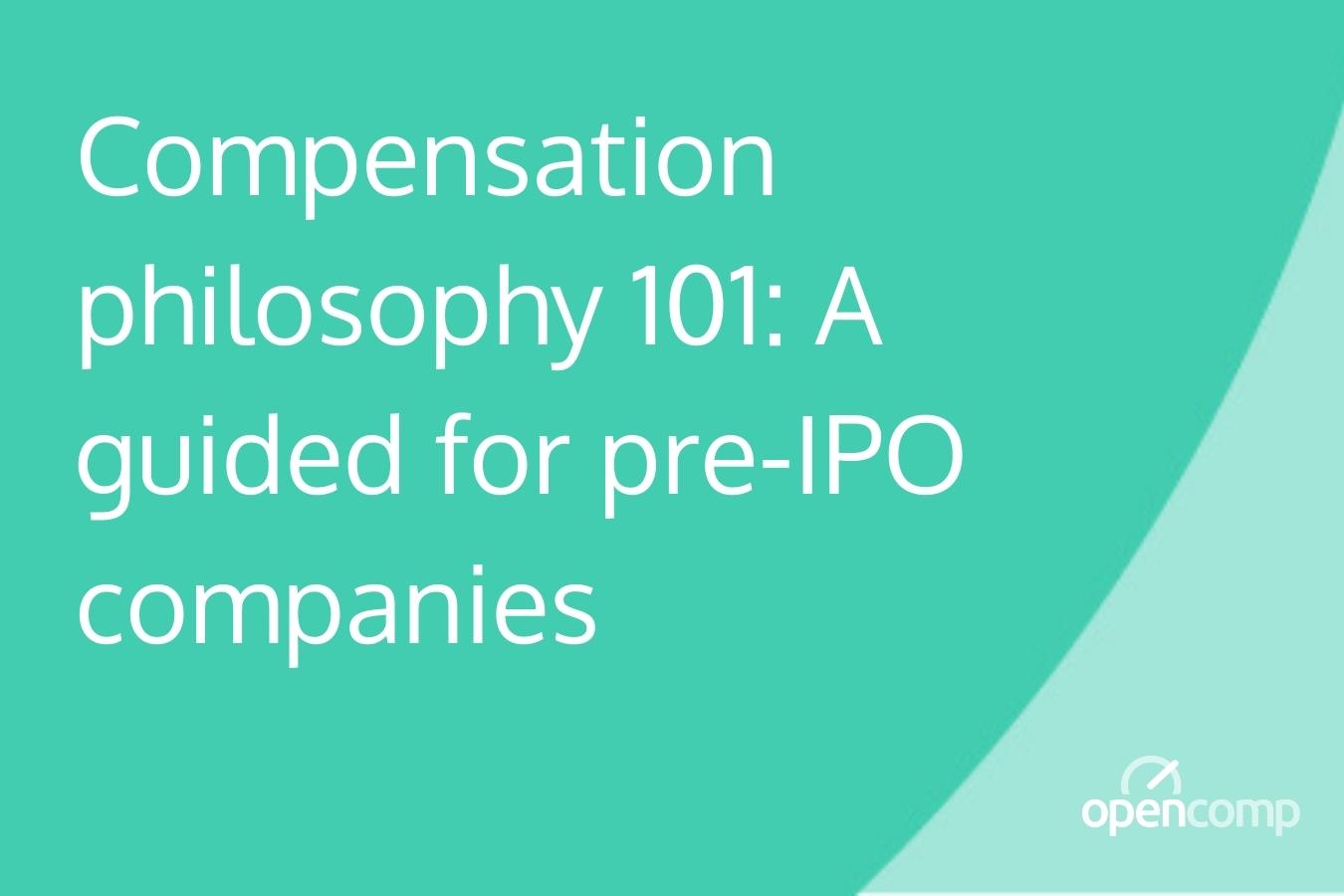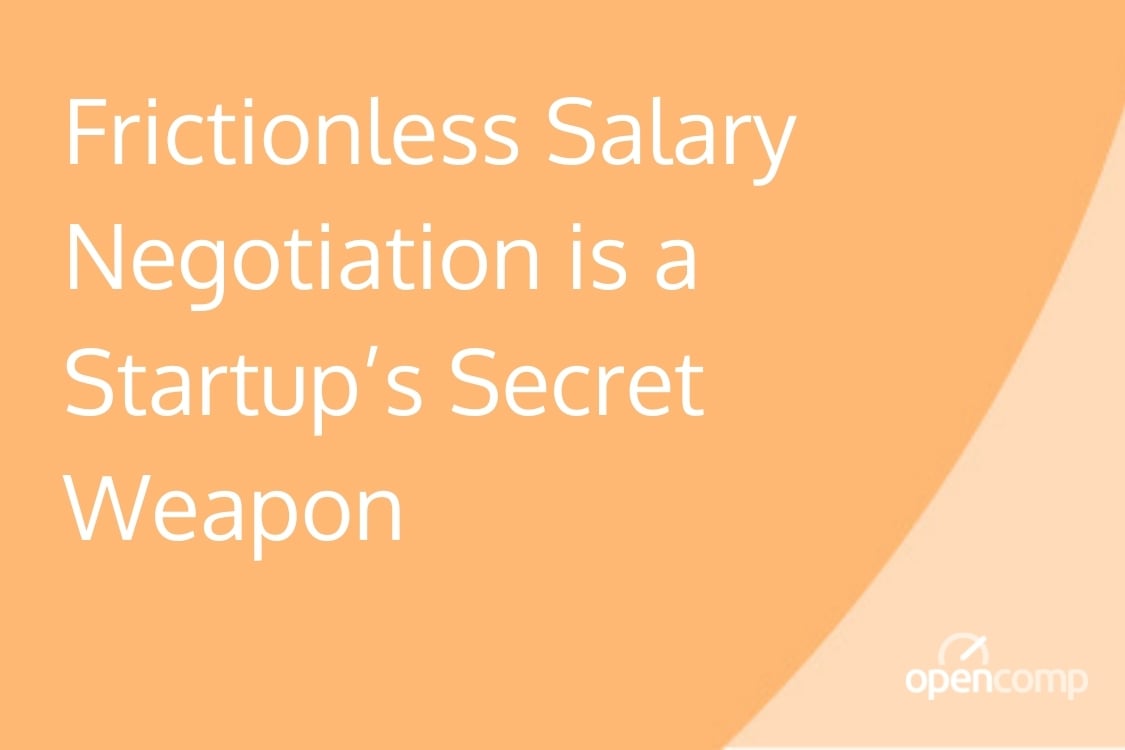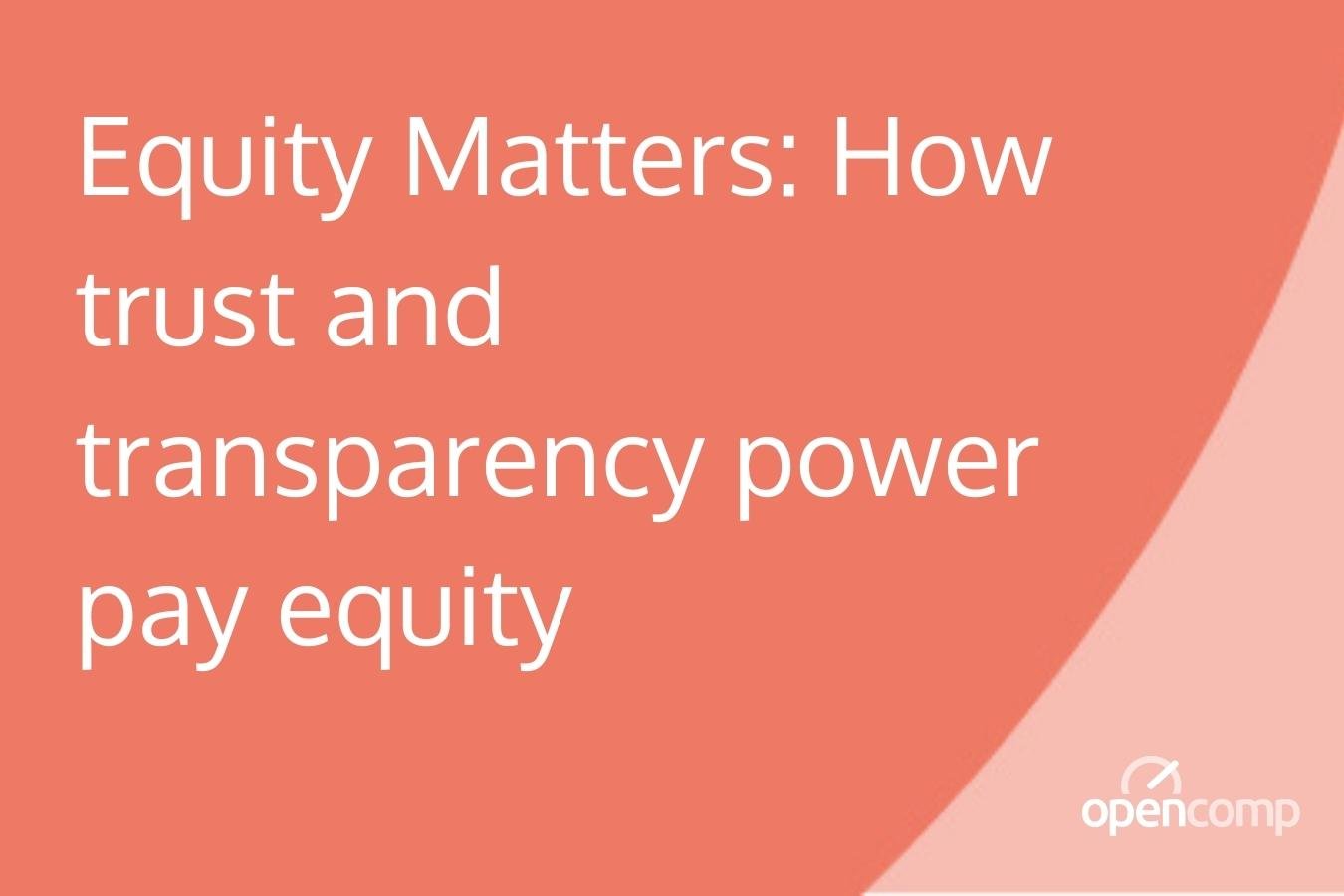The HR Leader’s Guide To Frictionless Salary Negotiation
Ditch the zero-sum game of salary negotiation and create a culture of trust, transparency, and equity.
Introduction
Traditional salary negotiation is the draining ping-pong of numbers that starts with the pivotal question: What are your salary expectations? The job candidate’s answer is then followed by all the ways a company thinks it should pay less.
If you’ve accepted that scenario as standard, it’s time to reconsider. Traditional compensation negotiation can unnecessarily burn cash and drive critical talent to the competition — an undesirable fate especially in today’s labor market where 80% of tech workers and 65% of workers overall are looking for new jobs with compensation the top reason why.
Rather than settle for the status quo, what if businesses…
… said no to traditional salary negotiations?
… said no to playing games and grinding down candidates for the cheapest price?
… led with science so that pay isn’t unintentionally influenced by race, gender, name, where you went to school, or how you speak?
… build offers based on skills, abilities, experience, and always, good data?
What happens when businesses do that? Here’s what happened when we did it: our offer acceptance rate hit 83%. Compare that to the average tech/SaaS startup acceptance rate of 65%, and it’s clear that old ways of negotiating are holding businesses back.
This guide will give you best practices for frictionless salary negotiation so you can:
- Build a culture of trust and transparency
- Bridge pay gaps
- Enjoy a significant advantage over the competition
- Save time and money on hiring
- Win AND keep top performers in a market where 65% of workers are searching for a new job with compensation being the top reason why
By leading with science over art, frictionless salary negotiation can do more than reduce bias.
“Frictionless negotiation is about abolishing bias in this one sliver of the work world.”
Ian Gover, President & Chief Operating Officer, OpenComp
Let’s get started.
Download a PDF version of this guide by filling out this form, or keep scrolling to learn more.
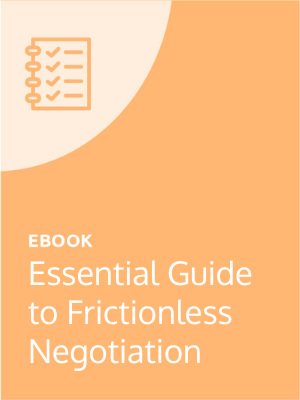

Why Do We Negotiate In The First Place?
It’s human nature to negotiate — from the caveman days of negotiating for survival to today's more modern negotiations about what to order for dinner.
While negotiation makes sense for many situations, when it comes to compensation, the practice is, frankly, absurd.
Here’s how a typical salary negotiation flows:
Hiring manager: We are so thrilled we found you! We’ve taken you through the wringer. You've met 10 of our employees. Everybody is supercharged. You have exactly the skills and experience we need to drive our business forward. Now let’s start a negotiation.
Job candidate: Fantastic! I believe I’m worth $X.
Hiring manager: Here’s where I tell you all the reasons that you’re not worth that amount.
This draining ping-pong of numbers creates friction, weakens trust, and starts your budding employer-employee relationship on a sour note. Is that a scenario you want to perpetuate?
Companies who engage in traditional salary negotiation face common pitfalls and mistakes. Keep reading to learn where things typically go wrong and how to take the friction out of negotiation so you can:
- Better articulate the true value of offers
- End unintentional bias
- Build trust with candidates and employees

Pitfalls of Traditional Salary Negotiation
Aside from leaving people feeling icky, salary negotiation is bad for business, morale, and company culture for several reasons.
It’s a zero-sum game. Salary negotiation is typically an “I win, you lose,” situation. One party has to give up a lot in order for the other to win — and it’s rare for the candidate to emerge the victor. It’s even less common for both parties to feel like what they got was fair and equitable.
It leads to false positives and false negatives. With the status quo, a worker’s compensation is tied to their ability to negotiate. That ability has nothing to do with the skills, experience, or value they’ll bring to the company. You can be a stellar engineer, but a terrible negotiator. That means low performers can get paid too much, and high performers can be undervalued. We need a more level playing field.
It relies on broken communication. Nothing is as infuriating to candidates as ghosting and long periods of silence after a flurry of activity, praise, or even counteroffers. If you’re a serial ghoster, beware: The tables are turning as 84% of U.S. job candidates admit they’ve ghosted an employer, potential employer, or both.
It upholds pay disparity. 73% of employers in the U.S. expect a salary negotiation on an initial job offer, but only 55% of candidates actually ask for a higher salary. Among those who do negotiate, not all are successful.
Men tend to achieve better results in negotiation than women, and women of color have even less success. On average, women earn just $0.82 for every $1 earned by men. For women, this wage gap could mean up to $2 million in lost wages over a lifetime.
Resources
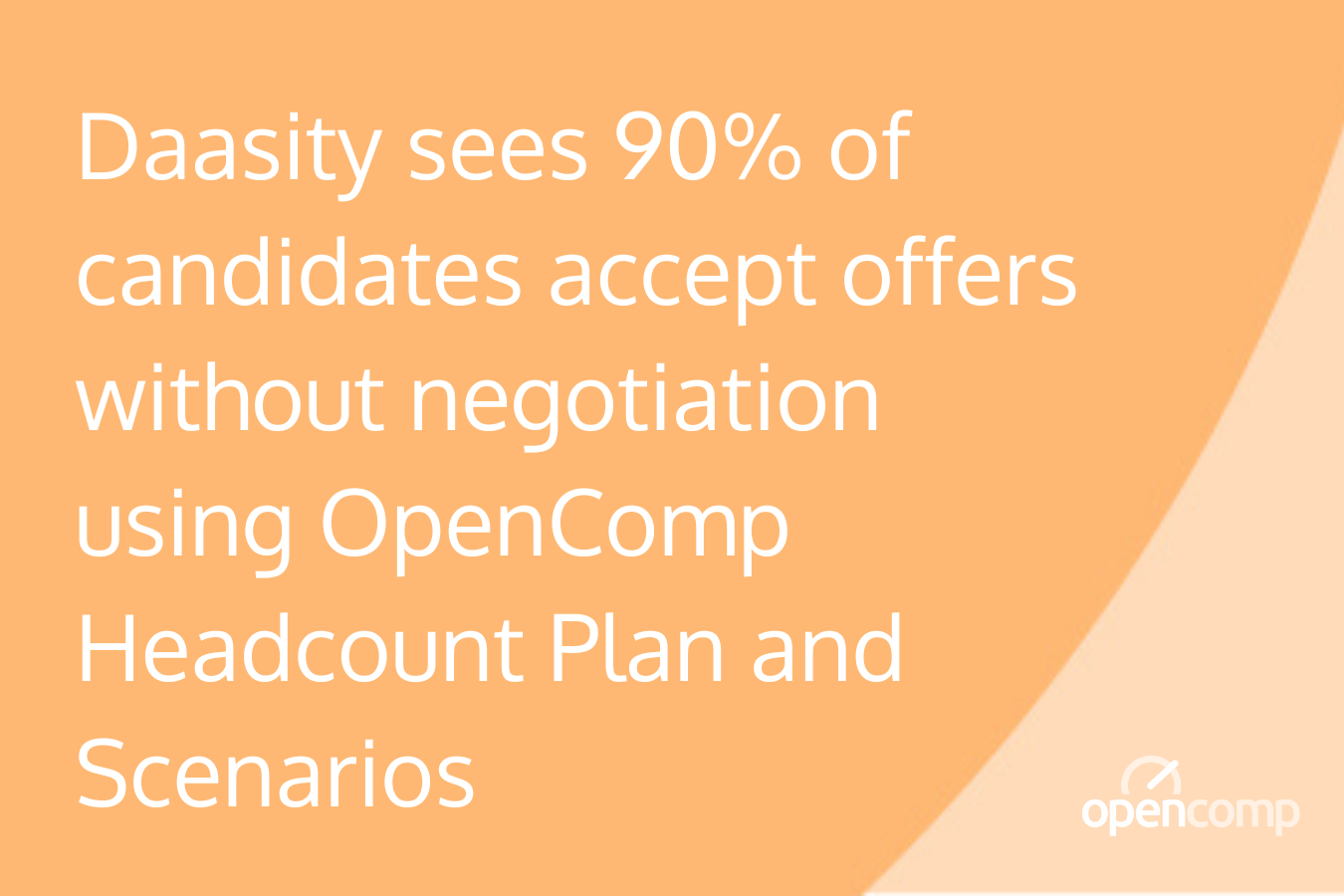
Daasity sees 90% of candidates accept offers without negotiation using OpenComp Headcount Plan and Scenarios
Read More
Frictionless Salary Negotiation Best Practices
The process for frictionless salary negotiation begins well before you first make contact with a candidate. Here are the steps to take the stress and tension out of salary negotiation.
Use the right tools to design an accurate compensation strategy
How do you know what’s a fair salary in today’s market?
- Start with fresh, reliable, and competitive benchmarking data to compare your company’s roles to similar roles at other companies within the industry and the broader marketplace.
- Use that information to create your compensation philosophy, the written statement that explains how you plan to pay and reward your employees based on your company’s stage, finances, location, and goals.
- Conduct a market analysis to see how your plan compares to competitors.
- Create job levels for each of your roles based on skills, experience, and competencies. For example: engineer, senior engineer, lead engineer.
- Create a pay range, aka salary band or pay band, for each job level for a role.
Share the salary range in the job posting and initial conversation
Don’t wait until the final stages of the hiring process to talk about compensation. Do it as early as you can.
As more states pass pay transparency legislation, sharing salary ranges or salary bands in job descriptions is quickly becoming a legal requirement. But sharing salary ranges goes beyond compliance. It meets social demand for pay transparency and reduces the risk that you’ll invest time and resources on a candidate you can’t afford, or who has unrealistic salary expectations.
By sharing compensation early, you set a level field for discussions, eliminating ambiguity and the stress that comes with it. And if your pay range happens not to be a fit for candidate needs, you’ll both save a lot of time upfront.
Use data to add context to your offer
Most candidates only have access to free, unverified data they find on the internet, which increases the risk that they’ll have salary requirements that are widely off-mark. Think VP-level compensation for a junior-level role.
When a candidate's expectations are unrealistic, even your most competitive offer can make them feel lowballed. That’s why it’s important to give candidates the context behind your offer.
- Explain where your data comes from, your compensation philosophy, the job level, and the pay range.
- To further demonstrate that there’s a strategy behind your offer, share how different roles relate to your overall business goals. What skillsets, abilities, and experiences are critical to reaching the next stage?
While interviews help you learn about a candidate as a person, you want compensation conversations focused on a candidate’s skills and experience. Data that’s verified by employers and relevant to your industry and stage of growth help you do that.
Lead with your best offer first
Save the haggling for the flea market. If you want the best talent, don’t wait for candidates to guess or corner you into making your best offer. Open the conversation with it.
Leading with your best offer doesn’t mean there’s no wiggle room. It signals that you’ve done your work to analyze the right data for their skills and competencies and are confident that the offer you’re presenting is fair and competitive in the current marketplace.
Pro tip: When making an offer, state the midpoint, not the range, because candidates tend to anchor on the top of the range when you do this. The midpoint leaves room for discussion.
“If you’re having transparent conversations along the way about the range, job levels and your assessment of them, by the time you get to the end of the process, you’ll have their buy-in and they’re basically agreeing to an offer before you even send it.”
Ashley Brounstein, Head of People, OpenComp

Lose Friction, Gain Trust
Trust is key to a healthy company culture. When employees trust their company’s commitment to creating an equitable culture, their engagement level can increase up to 20%, and the likelihood they will leave their organization decreases by 87%.
But how can companies build trust? Being open, honest, and transparent about compensation is one of the most effective ways.
Compensation conversations, from the first hiring interview to consistent formal and informal check-ins during employment, are pivotal moments in employer-employee relationships. They are opportunities to build either trust or mistrust.
As you address common negotiation pitfalls and mistakes with the best practices we’ve discussed, an easier process with greater trust can emerge.
The big takeaway: lead with data
By leading with data, it’s never about a person’s worth. You can focus on your needs for the role and a person's experience, skills, and abilities and find the place where both sides benefit.
When you say no to traditional salary negotiation and replace it with clear data-driven conversations, you set the foundation for a trusting relationship. And healthy work cultures are built on trust.
In addition to what we’ve already discussed, people leaders can take the following actions to build compensation clarity and trust with both candidates and employees:
- Develop and deploy pay ranges
- Throw out salary history considerations
- Conduct regular pay audits
- Budget to fix revealed discrepancies
- Invite candidates and employees to ask questions about their pay
“If you do this right, you end up with the right people, in the right roles at the right times. And you’ll have fairness, equity, and transparency in your organization.”
Download a PDF version of this guide by filling out the form




.png)
